The NFL trade deadline seemed to come too soon this year. A stunning week of trades culminated with a pair of deals just before the deadline on Tuesday afternoon and one that showed up a few moments too late. Jimmy Garoppolo might have been the biggest name to switch teams this week, but there are other players who will have more meaningful impacts on the 2017 season.
We won't know whether those deals turned out as planned for a while, but we can take a first glance at them now. We also can take a look back at the many trades that have gone down during this league year to see how they've turned out so far. Some familiar punchlines will remain the butt of easy (and perhaps deserved) jokes, but some of the league's best franchises also have made deals they would like to take back.
Let's run through the most notable of those trades from the past year ... starting with one that didn't actually happen:
The new deals
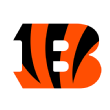
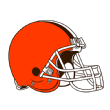 Bengals (don't) send: QB AJ McCarron
Bengals (don't) send: QB AJ McCarron
Browns (don't) send: 2018 second- and third-round picks
If you thought the Browns starting 0-8 for the second consecutive season was rock bottom, well, you were fooled. Cleveland fans are now pining for the halcyon days of when the Browns were simply a winless team on game day. You would say this organization is a laughingstock if the joke were funny anymore.
In addition to the problems on the field, the dissension between coach Hue Jackson and the team's front office has been laid bare during this disastrous season. The disagreements date back as early as last June, when Jackson publicly shot down the largest staff of sport scientists in the league by insisting on his own schedule for padded practices. Leaked reports about Jackson's dissatisfaction with the team's quarterback choices have spilled out to friendly media members this season. The tone around this team is markedly different from the tone in San Francisco, even before the Garoppolo trade.
Reports about what went wrong and prevented Tuesday's trade for McCarron are varied. One suggests that the Browns were too busy celebrating the trade to send in the paperwork, which only seems plausible if you figure that the Browns have virtually no recent experience celebrating anything. The generally accepted version suggests that the disconnect between Jackson and the front office delayed the decision, with the Bengals eventually sending their half of the trade confirmation to the NFL, and the Browns either sending their confirmation to the Bengals without informing the NFL or not sending anything useful to anyone.
Under any circumstances, we know the Browns intended to send second- and third-round picks to the Bengals for McCarron, who played under Jackson in 2015 and threw 119 solid passes behind an excellent offensive line while surrounded by playmakers. McCarron's contractual status is also the subject of some debate, but it seems likely that the Browns believed McCarron will be a restricted free agent next season, as trading two picks for a quarterback who would hit free agency this offseason would be absolute lunacy.
I think the Browns should be happy the move didn't go through, and honestly, so should McCarron. I'm not knocking the former Alabama starter's talent, but he's the wrong fit for the Browns and Jackson, who has shown no aptitude for managing his quarterback options over the past couple of years. You could have blamed the constant rotating of Cleveland passers in 2016 on a series of injuries, but Jackson has flipped between DeShone Kizer, Kevin Hogan and Cody Kessler on seemingly a weekly basis this season. It's entirely possible that Jackson doesn't have an NFL-caliber quarterback on his roster, but by benching Kizer multiple times and repeatedly inserting him back into the lineup, what chance could Kizer ever have had to succeed?
A smart team with everyone on the same page could draft and acquire multiple midtier quarterbacks and make one decisive choice after watching everyone in practice. The Browns are not that organization. McCarron would have given them another replaceable option, a quarterback who would have been just promising enough to give a try and not valuable enough to avoid benching in search of a better option.
The Browns shouldn't add another quarterback to their roster until they identify the guy they want to go all-in for and keep in the lineup, come hell or high water, until they either make the playoffs or everyone gets fired. Outside of Garoppolo, there's nobody who they could have acquired who fit that bill in midseason, McCarron included.
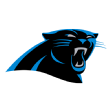
 Panthers send: WR Kelvin Benjamin
Panthers send: WR Kelvin Benjamin
Bills send: 2018 third- and seventh-round picks
It's bizarre to see two teams basically in the same playoff stratosphere thinking so differently. The 5-3 Panthers have a 54.4 percent chance of making the playoffs after winning against the Bucs on Sunday, according to the Football Power Index, while the 5-2 Bills are narrowly ahead of them in the other conference, with a 61.1 percent shot of participating in their first postseason since 1999.
Understanding the trade from the Bills' perspective is pretty simple. Buffalo has stockpiled 2018 draft picks as it tries to rebuild its roster after years of poor decisions under Doug Whaley's administration, but the 2017 team has been more competitive than perhaps even it expected. The Bills had a huge hole at wide receiver after trading Sammy Watkins, especially given that second-round pick Zay Jones has been the worst wide receiver in football during the first half of the season. Trading for Benjamin gives Tyrod Taylor a massive new target in the prime of his career. Benjamin's rookie deal runs out this year, but the Panthers picked up the 26-year-old's fifth-year option this offseason, locking him in for 2018 at the relatively reasonable price tag of $8.5 million. Throw in the fact that the Bills' coach (Sean McDermott) and general manager (Brandon Beane) were both hired away from Carolina and it's not difficult to understand their interest.
The decision is far more curious for the Panthers. Benjamin was tied for the team lead in targets (seven) and led all wideouts with 72 percent of snaps during Carolina's win on Sunday, so he wasn't out of the rotation. The Panthers also don't have a ready replacement for Benjamin in the lineup, as backups Curtis Samuel and Kaelin Clay are totally different types of players. The trade could suggest that the Panthers expect to get back Greg Olsen soon and will devote some of Benjamin's targets his way, but Cam Newton could have used both Benjamin and Olsen on the field.
The best explanation I can figure is that the Panthers were concerned about Benjamin's left knee in the context of a long-term commitment. Benjamin tore his ACL in 2015 and missed the entire campaign, and he reinjured the knee in September. Benjamin has managed to play through the injury without missing any time, but things could go south fast if the knee breaks down. Benjamin's fifth-year option is guaranteed for injury, meaning that the Panthers could have found themselves on the hook for a player who can't perform. The knee also might have dissuaded the Panthers from considering a long-term extension for Benjamin, meaning that a trade would have come sooner rather than later.
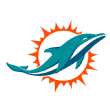
 Dolphins send: RB Jay Ajayi
Dolphins send: RB Jay Ajayi
Eagles send: 2018 fourth-round pick
I already wrote down a few thoughts about why this deal isn't crazy from the Dolphins' perspective:
The Dolphins were struggling on offense last year until Adam Gase made the call to abandon his running back rotation and hand the job over to Jay Ajayi. After a loss to the Titans, Ajayi ran for 204 yards in a win over the Steelers, and the offense was significantly better the rest of the way. Even during his breakout season, though, Ajayi was a big-play back who wasn't inclined to keep the offense on schedule. He ranked 13th in DVOA, but 32nd in Success Rate. This year, the big plays have mostly disappeared -- Ajayi has zero runs of 25 yards or more after racking up six of them last year -- and Gase grew publicly frustrated with Ajayi's propensity to seek out the big play in lieu of hitting the hole and taking what was blocked. That's the challenge at the heart of this trade. The Eagles, who are predicated upon efficiency, think they can take Ajayi and coach him into a back who stays within the offensive scheme and still makes big plays. Gase apparently didn't think he could, which says a lot about how dysfunctional the Miami offense is right now.
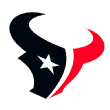
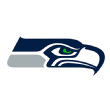 Texans send: T Duane Brown, 2018 fifth-round pick
Texans send: T Duane Brown, 2018 fifth-round pick
Seahawks send: 2018 third-round pick, 2019 second-round pick
The Texans were able to extract a better haul for Brown after cornerback Jeremy Lane, who was part of the initial return for the tackle, failed his physical. If we use the FPI projected standings for 2018, project the Seahawks to finish with the 24th pick in the 2019 draft, and apply Chase Stuart's draft value chart, the Seahawks sent draft capital commensurate with the 26th overall pick to the Texans to acquire their desperately needed left tackle.
Brown held out for most of this season in search of a new deal, and it's fair to wonder whether his status as team spokesperson in light of the Bob McNair controversy might have encouraged the Texans to finally trade him. Houston had gotten by with Chris Clark at left tackle before last week, when Clark was injured and Brown returned to the lineup for the game against his future teammates. Clark will return to left tackle now that Brown is gone.
You know things are bad with the Seattle offensive line when even the Seahawks believe they need to invest in improvements. Even if Brown is on the downswing at 32, he'll represent a massive upgrade over Rees Odhiambo. In a year in which there's no truly dominant team, the Seahawks just made huge strides at their biggest point of weakness. Even given the cost in draft picks, you can't fault Seattle for trying.
What's going to be interesting, though, is how the Seahawks handle a Brown extension. His contract has no guaranteed money remaining and would pay out $9.8 million in its final year next season, but the Seahawks likely traded for Brown with the intention of employing him past 2018. A new deal for Brown should guarantee his salary in 2018 and would likely offer at least a partial guarantee for 2019.
If the Seahawks are spending $9 million more on their left tackle than they had budgeted with Odhiambo or George Fant, though, that money has to come from somewhere. Two large deals will come off the payroll this offseason once the contracts of Jimmy Graham (with a $10 million cap hit in 2017) and Luke Joeckel ($7.3 million) wrap up, but it's not as simple as taking money for Brown out of that bucket.
The Seahawks will likely try to retain Sheldon Richardson, who is due to become an unrestricted free agent. Richard Sherman, Earl Thomas, Frank Clark and Tyler Lockett will each be entering the final year of their respective deals in 2018, and they're all going to be in line for raises. Signing Brown makes it more likely one of the other big names on the Seahawks' roster will be leaving as early as this offseason.
The win-wins
Let's get to some of the other trades from the past year, starting with a player we just mentioned and some of the few trades that actually benefited both sides:

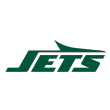 Seahawks get: DL Sheldon Richardson, 2018 seventh-round pick
Seahawks get: DL Sheldon Richardson, 2018 seventh-round pick
Jets get: WR Jermaine Kearse, 2018 second-round pick, 2018 seventh-round pick
Both teams have to be happy with how this one worked out, at least so far. Richardson hasn't been dominant in the trenches for Seattle, but he has been an effective rotation lineman while lining up for nearly 68 percent of the Seahawks' defensive snaps. He looks more like the guy who terrified teams next to Damon Harrison in New York than the fish out of water miscast as an outside linebacker last season.
The Jets picked up a valuable draft pick, but they've also found plenty of uses for Kearse, who has been one of the focal points of a surprisingly effective passing game. The 27-year-old is catching 71.1 percent of his targets from Josh McCown and has three touchdown catches of 20 yards or more, placing him second among wideouts behind Oakland's Michael Crabtree. Kearse also has a deserved reputation as an effective blocker in the running game. The Jets are paying just $2.2 million for Kearse this year and would be in line to shell out $5 million in 2018, which is a bargain given that someone like Marvin Jones is making $7 million.
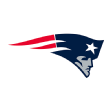
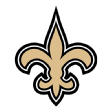 Patriots get: WR Brandin Cooks
Patriots get: WR Brandin Cooks
Saints get: 2017 first-round pick (OT Ryan Ramczyk) and third-round pick (DL Trey Hendrickson)
There's a perception in some circles that Cooks has been disappointing since joining the Patriots. I don't see it. Playing in an offense that is avowed for spreading around the ball, Cooks is fifth in the league in receiving yards while averaging a career-high 17.1 yards per catch. The 24-year-old's catch rate is down, but Tom Brady's average pass toward Cooks is traveling 14.1 yards in the air, which also would be a career high. Cooks' drop rate is 5.7 percent, but the difference between his career rate (2.2 percent) and his 2017 rate is two drops over eight games. He'll be fine.
The Saints haven't been quite as explosive on offense without Cooks, but they're doing just fine. Ramczyk has been critically important to a line that was without left tackle Terron Armstead for most of the season and will miss right tackle Zach Strief the rest of the way. Ramczyk has allowed only one sack, per Stats LLC, in seven games as a starter. Hendrickson has flashed promise as a situational pass-rusher and is second on the team with five quarterback knockdowns. Both sides should be delighted so far.
The lose-loses
Naturally, if there are deals that benefit both teams, there have to be trades where neither side feels particularly pleased with the outcome:

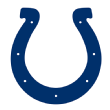 Patriots get: TE Dwayne Allen, 2017 sixth-round pick (traded)
Patriots get: TE Dwayne Allen, 2017 sixth-round pick (traded)
Colts get: 2017 fourth-round pick (T Zach Banner)
This trade might have cursed everyone involved. It's rare for a fourth-round pick to be cut during his first training camp, especially on a team with as little talent as Indianapolis has, but Banner was let go on cut-down day and is on the Browns' practice squad. Allen was expected to play the Martellus Bennett role for the Patriots, but he hasn't caught a single pass on six targets this season. The sixth-round pick was packaged in a trade down that saw the Patriots draft Derek Rivers, who tore his ACL in August. Yikes.
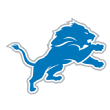
 Lions get: T Greg Robinson
Lions get: T Greg Robinson
Rams get: 2018 sixth-round pick
The Rams probably dealt Robinson too early by shipping him off in June, given that failed first-round interior offensive linemen such as Cam Erving and Laken Tomlinson were traded for fifth-round picks later in the summer. The Lions slotted Robinson in at left tackle after Taylor Decker went down and got predictably ugly results, as Robinson allowed 5.5 sacks in six starts before sitting with an ankle injury.
The small victories
None of these moves are going to win anybody a Super Bowl or get anyone fired, but as we approach the halfway point of the season, there seems to be a clear winner and loser when you look at the talent involved:

 Patriots get: CB Johnson Bademosi
Patriots get: CB Johnson Bademosi
Lions get: 2019 sixth-round pick
It's hard to believe the Lions couldn't find a spot in their middling cornerback depth chart for Bademosi, a former Browns regular whom the Patriots likely acquired for his special-teams skills. Pushed into action at corner after Stephon Gilmore and Eric Rowe went down with injuries, Bademosi has been a revelation in a starting role. He'll be a regular in the rotation even after Gilmore returns, and the Pats will likely recoup a more impressive compensatory pick once Bademosi's contract expires this offseason.

 Browns get: S Calvin Pryor
Browns get: S Calvin Pryor
Jets get: ILB Demario Davis
The Browns attempted to buy low in trading for Pryor, but Cleveland cut the former first-round pick in September after he got into a fight with teammate Ricardo Louis. In return for Pryor, they sent Davis back to his old stomping grounds after one year in the Midwest. Davis wasn't a legendary Jets player during his first go-round with the team, but he has recommitted to football and looks like a totally different player under Todd Bowles. Davis has been a solid inside linebacker and even a useful pass-rusher this season, racking up 2.5 sacks and eight quarterback knockdowns. One of those hits forced an interception against the Browns, which shows how things are going for Cleveland.
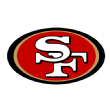
 49ers get: 2017 fourth-round pick (RB Joe Williams)
49ers get: 2017 fourth-round pick (RB Joe Williams)
Colts get: 2017 fourth-round pick (RB Marlon Mack) and fifth-round pick (Anthony Walker)
The 49ers traded up 22 spots in the fourth round to grab Williams, reportedly at the behest of Kyle Shanahan. Williams failed to impress in camp, though, and was stashed on injured reserve with an ankle injury.
As is often the case, the 49ers might have been better off just waiting and grabbing another player at the position they wanted. Mack has been one of the few bright spots for the Colts, and while Indianapolis didn't find a trade partner for Frank Gore before the deadline, it wouldn't be a surprise to see the Colts give Mack the starting running back job by the end of the season.

 Vikings get: 2017 third-round pick (C Pat Elflein)
Vikings get: 2017 third-round pick (C Pat Elflein)
Jets get: 2017 third-round pick (WR ArDarius Stewart) and fifth-round pick (traded)
After struggling with a disastrous offensive line over the past two seasons, the Vikings committed to improvements in 2017. Minnesota signed Riley Reiff and Mike Remmers to play tackle, then upgraded on the interior by trading up to grab Elflein, who has probably been the best rookie offensive lineman in the league. The Jets nabbed Stewart, who didn't impress despite a wide-open depth chart and has just two catches since Week 1. New York traded the fifth-round pick to the Browns in a deal that eventually netted them Elijah McGuire, so things could be worse.

 Ravens get: 2017 third-round pick (DL Chris Wormley)
Ravens get: 2017 third-round pick (DL Chris Wormley)
Eagles get: DT Timmy Jernigan, 2017 third-round pick (CB Rasul Douglas)
The Ravens dealt Jernigan knowing they wouldn't be able to sign the Florida State product to an extension. The Eagles might not be able to afford Jernigan either, but they're certainly happy he's around. Jernigan has 1.5 sacks and six quarterback knockdowns this season, while his six tackles for loss against the run are tied for the third most in the league.
It's still too early to judge the draft picks, but the initial returns on Douglas are promising. The 22-year-old was forced into the lineup after the Eagles lost a handful of defensive backs, and he has shown promise while playing 299 defensive snaps. Douglas and redshirting rookie Sidney Jones could be Philadelphia's next pair of starting corners. Wormley, meanwhile, has taken 100 defensive snaps on a deep Ravens defensive line.
The big wins
Trades can always flip, especially when young talent is involved, but these look pretty clearly to be massive victories for one side. From what we know so far, these are the five most lopsided deals of the 2017 league year:

 Rams get: WR Sammy Watkins, 2018 sixth-round pick
Rams get: WR Sammy Watkins, 2018 sixth-round pick
Bills get: CB E.J. Gaines, 2018 second-round pick
The Rams have to be thrilled with their stunning 5-2 start, but if you asked, I suspect they would quietly like to take back this deal. Jared Goff looks like a different human being throwing to Robert Woods, Cooper Kupp and Todd Gurley, but he has yet to find any rhythm with Watkins, who has just 18 catches and 264 receiving yards in seven games. As it stands, the Rams probably wouldn't want to sign Watkins to an extension this offseason, making him an expensive rental.
Buffalo pocketed a valuable second-round pick in the deal, which certainly made it easier for the Bills to trade a third-round pick for Benjamin. The former Panthers wideout has his flaws, but he has been more productive and available than Watkins, and he's signed for an extra year. Gaines also was holding his own as a starter in the league's most surprising secondary before going down with a hamstring injury, which kept him out of Sunday's win over the Raiders.

 Browns get: QB Brock Osweiler, 2017 sixth-round pick (traded), 2019 second-round pick
Browns get: QB Brock Osweiler, 2017 sixth-round pick (traded), 2019 second-round pick
Texans get: 2017 fourth-round pick (Carlos Watkins)
When I wrote about the Osweiler trade in March, I mentioned that the Browns were probably paying too much for a second-round pick unless they either got something out of Osweiler or were able to ship him along for another pick. In the end, they did neither; Osweiler was cut during camp, meaning that the Browns paid $15 million for a second-rounder two drafts away. Draft picks are valuable, but there are much smarter ways to spend $15 million.

 Texans get: 2017 first-round pick (Deshaun Watson)
Texans get: 2017 first-round pick (Deshaun Watson)
Browns get: 2017 first-round pick (Jabrill Peppers), 2018 first-round pick
While the Browns have gotten plenty of flak for passing on both Watson and Carson Wentz, the criticism is much more deserved for Wentz than it is for Watson. The 49ers, Jaguars and Jets each needed a quarterback and also passed on Watson. The Bears chose Mitchell Trubisky over Watson, and I'm not even convinced those two guys are playing the same position when I watch them play.
It's also true that teams that have traded two first-round picks for one often regret having done so, even if they're moving up for a quarterback. Ravens general manager Ozzie Newsome sent a second-round pick and a future first-rounder to the Patriots in 2003 to move up to grab Kyle Boller, and the Patriots used the extra first-round pick to draft Vince Wilfork. Peppers is now injured (toe) and the Browns haven't even used the 2018 pick yet, so we still don't know what their haul will be.
Watson has started only six games, and passers such as Robert Griffin III and Matt Leinart looked very promising over longer stretches as rookies before failing to emerge as franchise passers. I'm of the belief that Watson wouldn't look anywhere near as effective on the Browns, given how they've managed to suck the confidence out of Kizer. You only have to think about Goff's 2016 and 2017 campaigns to remember how different a quarterback can look with the right staff.
All of that is true. It's also true that the Browns would love to hit "undo" on this trade and hand their quarterback job over to Watson for the foreseeable future. Watson's success also makes it likely that the Texans won't finish with a terrible record, making that 2018 first-rounder less valuable than the Browns might have suspected when they thought Tom Savage was going to start more than one game.

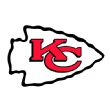 Vikings get: 2017 third-round pick, fourth-round pick, seventh-round pick (all traded)
Vikings get: 2017 third-round pick, fourth-round pick, seventh-round pick (all traded)
Chiefs get: 2017 third-round pick (RB Kareem Hunt)
The Vikings were busy making deals in this draft. After acquiring this pick from the Dolphins as part of an ill-fated Miami trade-up for Leonte Carroo in 2016, general manager Rick Spielman turned Kansas City's three selections into six picks via various trades. Three of those players -- Jaleel Johnson, Danny Isidora and Stacy Coley -- are on the active roster, with Isidora impressing as an injury fill-in at left guard against the Browns last week.
Spielman also traded up in the second round to draft Dalvin Cook with the 41st pick, sending the 48th selection and a fourth-round pick to the Bengals, who ended up drafting another back, Joe Mixon. Cook showed promise before tearing his ACL, but even before the knee injury, the Vikings had to be kicking themselves for not staying put and using the 86th pick to draft Hunt, who leads the league with 1,070 yards from scrimmage.

 Patriots get: WR Phillip Dorsett
Patriots get: WR Phillip Dorsett
Colts get: QB Jacoby Brissett
Let's finish up with a team getting a valuable asset for basically nothing. The Browns probably regret trading away the pick that the Texans used for Watson, but at least they came away with two first-round picks out of the deal.
After rumors suggested that they were thinking about cutting Brissett, an excellent preseason game led the Patriots to call around and solicit trade offers for their third-string quarterback. The Colts were a good fit, given that they had an injured quarterback and no need for slot receiver Dorsett, a first-round pick of the previous administration with no track record of success. The Patriots might have cut Brissett anyway. The Colts almost certainly would have let Dorsett go.
Dorsett is still on the New England roster, but he has four catches in eight games, three of which came during Danny Amendola's absence in Week 2. Brissett, meanwhile, took over as the Colts' starting quarterback for Scott Tolzien in Week 2 and hasn't looked back. Nobody would argue that Brissett is playing as well as Watson, but he has been a competent stopgap for an Indy offense that is held together by wire. Brissett's 37.2 Total QBR tops players such as Andy Dalton and Joe Flacco.
The 23-year-old Brissett profiles as a talented backup with significant trade value once Andrew Luck returns. It would hardly be out of the question for Brissett to fetch a third-round pick this offseason if general manager Chris Ballard is so inclined. The Patriots might very well wish they had Brissett around after trading Garoppolo earlier this week, even with Brian Hoyer due to make his way back East. There hasn't been much to cheer for in Indianapolis this season, but winning a trade with the Patriots and finding a useful quarterback certainly qualifies.

